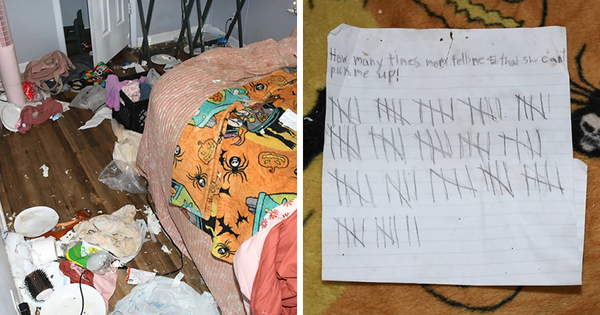
If you are a homeowner, it could be tempting to hop on home repairs as soon as they arise. However, if your quick fix violates code or was poorly executed, it could impact your home insurance. It is extremely important to know what kinds of home repairs might land you in hot water with the insurance company. These 10 DIY repairs could lead to a home insurance denial, even if you did your best.
1. DIY Roof Patching That Skips Permits
Grabbing some shingles and roofing cement may feel like a quick weekend fix. However, skipping permits or using the wrong materials can void coverage if your roof later leaks or collapses. Insurers often require documentation that repairs were completed to code by licensed professionals. An unpermitted repair may be seen as negligence in the eyes of your provider. Always check with your local municipality and insurance agent before roofing work.
2. Improper Water Heater Installations
Replacing a water heater yourself might seem doable with a few YouTube videos. But if you skip essential safety features, like pressure relief valves or proper venting, you’re in dangerous territory. A water heater explosion or carbon monoxide leak caused by poor installation is grounds for home insurance denial. Some policies even exclude damages from non-professional plumbing work. Always hire a licensed plumber for gas or electric appliance replacements.
3. Installing New Wiring Without Inspection
Electrical upgrades are another popular DIY project that can go horribly wrong. If you add outlets or run new wiring without an inspection, you risk causing a fire. Insurance companies often inspect electrical work post-incident and can deny a claim if it wasn’t up to code. Not only is it unsafe, but unapproved wiring changes could also breach your policy. When it comes to electrical, don’t gamble, go pro.
4. Replacing Pipes Without a Plumber
A leaky pipe might feel like a basic repair, especially if it’s under a sink. But any improper pipe replacement, especially in walls or floors, can cause major water damage down the line. If the insurance company learns a certified plumber didn’t do the work, your claim may be denied. Documentation of licensed repairs helps validate any future claim. Keep receipts and take photos as proof of professional installation.
5. Using The Wrong Materials for Repairs
Sometimes people use whatever materials they have lying around to make a quick fix. But using drywall in a bathroom or wood paneling in basements can cause mold or structural issues. If damage occurs and the cause is traced to unsuitable materials, insurance won’t cover it. Your repair might seem smart now, but shortcuts often raise red flags later. Stick to manufacturer-recommended and code-approved products.
6. Neglecting to Disclose Major Repairs
Even if you paid a professional, failing to notify your insurance company of major work can lead to problems. Roof replacements, structural repairs, and HVAC updates often require policy updates. If your insurer doesn’t know about the changes, it could lead to home insurance denial if something goes wrong. Call your provider anytime you complete a significant repair or renovation. Better safe than denied.
7. Building Without a Permit
Adding a shed, deck, or even a fence without a permit may sound like no big deal. But if your structure collapses or causes damage, insurance might not step in. Unpermitted structures are typically excluded from claims. Worse, you might be fined by your local government. Always research permit requirements before you build, even on your own property.
8. Not Hiring Certified Contractors
Hiring a friend or neighbor to help with a project might feel economical, but it’s risky. Insurance companies prefer certified, insured contractors to ensure liability and workmanship standards. If something goes wrong due to a non-certified contractor, your claim could be rejected. Ask for credentials and references before hiring. Protect your home by choosing professionals, not just someone “handy.”
9. Failing to Document Repairs
Even if you did everything right, not having a paper trail can cost you. Insurance adjusters want receipts, before-and-after photos, and contractor information to verify proper repair. If you can’t prove the repair met standards, you risk home insurance denial when filing a claim. Keep a digital and physical folder of all home maintenance records. It’s your best defense in a claim dispute.
10. Painting Over Mold or Water Damage
You might think a fresh coat of paint is enough to cover up a mold spot or water stain. But cosmetic fixes without addressing the root issue are considered concealment by insurers. If the problem worsens and leads to a claim, adjusters may deny it due to “failure to mitigate damages.” Always address the source of damage before painting or patching. Cover-ups rarely fool professionals.
Small Fixes, Big Consequences: Why Repairs Deserve a Second Thought
It’s easy to assume that fixing something yourself or skipping a few steps won’t make much difference. But insurance providers see things differently. Anything that compromises the safety or compliance of your home becomes a liability in their eyes. Taking shortcuts, omitting details, or avoiding professional help can be costly when you need to file a claim. Don’t let good intentions lead to financial fallout. Be informed, thorough, and cautious with every repair.
Have you ever had an insurance claim denied due to a repair mistake? Share your story or tips in the comments to help other homeowners avoid the same pitfalls!
Read More
9 Basic Repairs You Should Never Let a Dealership Handle
8 DIY Repairs That Make Your Home Harder to Sell
The post 10 “Common Sense” Repairs That Can Lead to Home Insurance Denial appeared first on Clever Dude Personal Finance & Money.







